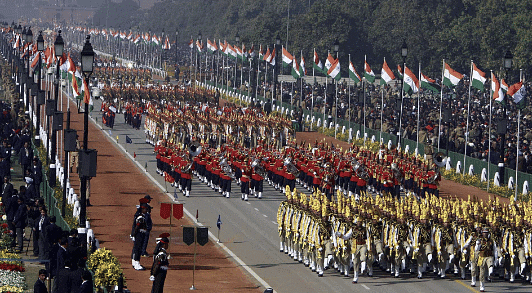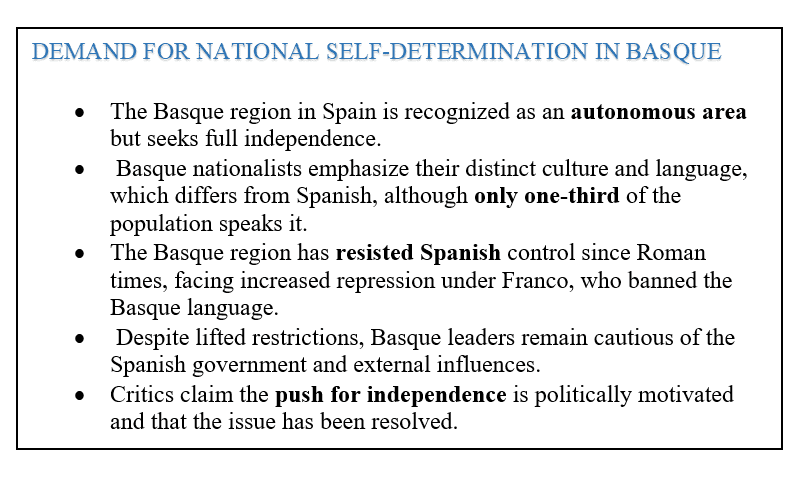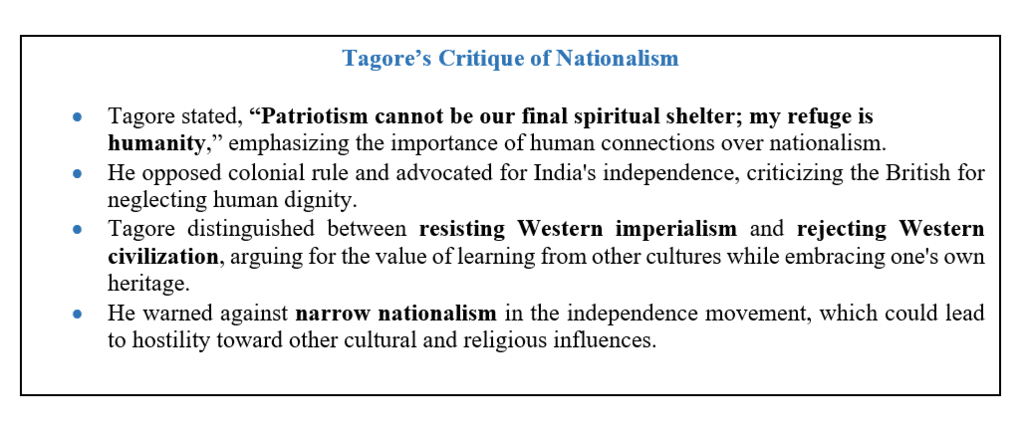Nationalism Class 11 Political Science
| Table of contents |

|
| Introducing Nationalism |

|
| Nations and Nationalism |

|
| National Self-Determination |

|
| Nationalism and Pluralism |

|
Introducing Nationalism
- Nationalism is often equated with patriotism, symbolised through flags, parades, and national sacrifices.
- India’s Republic Day parade reflects national power, unity, and cultural diversity.

- Defining nationalism precisely is difficult, yet it is crucial due to its major impact on world history.
- Over the past two centuries, nationalism has united people, ended oppressive rule, and also caused wars and divisions.
- It led to the disintegration of empires like the Austro-Hungarian, Russian, and colonial empires (British, French, Dutch, Portuguese).
- In the 19th century, nationalism unified smaller kingdoms into modern nation-states such as Germany and Italy, and created new states in Latin America.
- It replaced local loyalties and dialects with common languages and state-based political identities.
- India’s freedom struggle was a nationalist movement for independence from colonial rule.
- Separatist movements continue to reshape boundaries (e.g., Quebec in Canada, the Basques in Spain, the Kurds in Turkey/Iraq, the Tamils in Sri Lanka).
- Nationalism can both unite (e.g., pan-Arabism) and divide (e.g., separatist nationalism).
Nations and Nationalism
- A nation is not just a random group of people living together, and it is different from a family, where members know each other personally.
- It is also different from tribes or clans, where people are connected through marriage or blood relations and can trace those connections.
- In a nation, most people may never meet or know each other, and they may not be related by blood — yet, they feel connected.
- People often think that a nation is made up of people with common features, like:
- Same language
- Same religion
- Same ethnicity or ancestry - But in reality, not all nations share these features:
- Canada has both English and French speakers.
- India has many different languages spoken across various regions.
- Many nations do not share a common religion or race. - So, what makes a nation?
- A nation is mostly an ‘imagined’ community.
- People feel a sense of belonging through shared beliefs, hopes, and imagination.
- They believe they are part of a larger group — even without meeting most members. - This shared identity is built on assumptions people make about the group they belong to.
- The next step is to understand what these assumptions are.
Shared Beliefs
- A nation is formed by belief, not by physical things like rivers, mountains, or buildings.
- Nations are not physical objects that we can see or touch — they exist because people believe in them.
- When we call a group of people a nation, we are not talking about how they look or behave, but about:
- Their shared identity
- Their common dreams for the future
- Their desire for independent political existence (to rule themselves) - A nation is like a team:
- A team is a group of people who work or play together and see themselves as one unit.
- If the people didn’t think of themselves as a team, they would just be individuals doing tasks separately. - Similarly, a nation only exists when its people believe that they are connected and belong together.
History
- Those who identify as a nation carry a sense of ongoing historical identity.
- This continuity and unity form the foundation of the Indian nation.
- Nations view themselves as extending both into the past and into the future.
- They express their historical sense through shared memories, stories, and records.
- Nationalists in India asserted that the country has a long and continuous history as a civilisation, highlighting its ancient cultural heritage and achievements.
Territory
- Nations associate with a specific territory that they claim as their own.
- A shared history and long-term residence in a territory foster a sense of collective identity.
- The land they inhabit holds special meaning for them.
- This connection helps them envision themselves as a united people, leading them to refer to a homeland.
- Different nations may describe their homeland in various ways, such as motherland, fatherland, or holy land.
- For example, the Jewish people, despite being spread across the globe, have consistently regarded Palestine as their original homeland, the 'promised land.'
Shared Political Ideals
- Members of a nation have a common vision for the type of state they wish to create, affirming values like democracy, secularism, and liberalism.
- A shared set of political values and ideals is essential for a political community or nation-state. This creates obligations among members based on mutual recognition of each other's rights as citizens.
- A nation becomes stronger when its people recognise and accept their responsibilities towards one another.
Common Political Identity
- Many individuals consider a shared cultural identity, such as a common language or ancestry, to be a unifying factor for a nation.
- Celebrating the same holidays and festivals and valuing the same symbols can create a sense of community. However, it can also put democratic values at risk.
- This is because major religions are internally diverse, with various sects differing in their interpretations of religious texts and norms. Additionally, most societies are culturally diverse, with people of different religions and languages residing in the same area.

- Therefore, it is preferable to conceptualise the nation in political rather than cultural terms for these reasons. In other words, democracies should prioritise and anticipate loyalty to a set of values, which may be enshrined in the country's Constitution, rather than attachment to a specific religion, race, or language.Question for Chapter Notes: NationalismTry yourself:What is the basis of a nation?View Solution
National Self-Determination
- A nation wants to govern itself and decide its own future — this is called the right to self-determination.
By demanding this right, a nation asks the international community to recognise it as a separate political state.
These demands usually come from groups of people who have:
- Lived together in one place for a long time
- A shared sense of identity
- A desire to protect their cultureIn 19th-century Europe, people began to believe that each culture should have its own state.
After World War I, the Treaty of Versailles created new countries based on this idea.
But it was impossible to fulfil all self-determination demands, and many people were forced to migrate, lost their homes and became victims of violence and displacement.

- Trying to create states based on single cultures caused:
a) Mass migration
b) Communal violence
c) Homelessness for millions - Even new states created during this time had:
- More than one ethnic or cultural group
- Minorities who were often treated unequally - The challenge of giving minorities equal rights continued to be a major issue.
- Colonised countries in Asia and Africa also demanded self-determination through freedom struggles. These movements are wanted:
a) Recognition
b) Dignity
c) Justice and rights
d) Prosperity for their people - However, it was hard to give political independence to every cultural group that claimed to be a nation. This led to Border conflicts, Migration, &Violence.
- Many independent nations now deny self-determination to their own minorities, even though they once fought for it themselves.
- Almost every country today faces problems with self-determination movements.
People are realising that the solution is not creating new states. Instead, existing states should become more democratic and inclusive. People of different cultures and ethnicities should live together as equal citizens.
This is necessary to solve self-determination issues, build a strong and united nation and gain the loyalty of all people, including minorities.

Nationalism and Pluralism
- When we abandon the idea of one culture for one state, we need to find ways for different cultures to thrive together.
Protection of Minority Communities
- Many democratic societies now focus on recognising and protecting the identities of cultural minority communities.
- The Indian Constitution has detailed provisions to protect the rights of religious, linguistic, and cultural minorities
Group Rights
- Various countries grant rights to minority groups, including:
(i) Constitutional protections for their languages, cultures, and religions.
(ii) Rights to representation in legislative bodies and state institutions.
Justification for Rights
- These rights help ensure equal treatment and legal protection for minority group members, as well as safeguard their cultural identity.
Inclusive National Identity
- The national identity should be defined inclusively, recognising the contributions of all cultural communities.
Continued Aspirations
- While recognition and protection may address some aspirations, some groups may still seek separate statehood.
- This desire for nationalism persists even in an age of globalisation.

Conclusion
- Nationalism unites and divides, creating nations but also conflicts.
- Nations are imagined communities based on shared beliefs, history, and territory.
- Self-determination drives statehood demands, causing migration and violence.
- Inclusive nationalism protects diverse cultures, ensuring equal rights for all.
|
43 videos|268 docs|39 tests
|
FAQs on Nationalism Class 11 Political Science
| 1. What is nationalism and how does it impact the identity of a nation? |  |
| 2. How does national self-determination relate to nationalism? |  |
| 3. Can nationalism coexist with pluralism in a society? |  |
| 4. What are some positive and negative effects of nationalism? |  |
| 5. How has nationalism evolved in the modern world? |  |
















